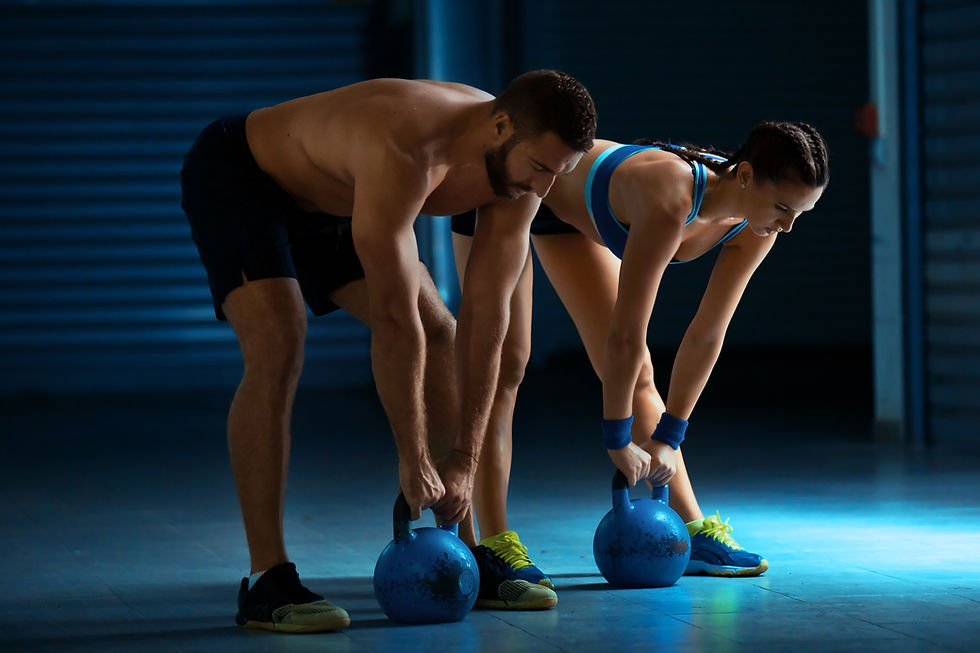Maximizing Performance: The Crucial Role of Macronutrients in Pre- and Post-Workout Nutrition
- deepak chauhan
- Dec 30, 2024
- 4 min read
Nutrition is a key player in how effective your training and workouts are. Whether you're working out for fitness or performance, knowing how macronutrients help you before and after exercise is crucial. This guide details how carbohydrates, proteins, and fats can enhance your workout results and recovery.
Understanding Macronutrients
Macronutrients are the nutrients your body needs in larger amounts: carbohydrates, proteins, and fats. Each serves a vital role in your overall health, energy levels, and workout performance.
Carbohydrates are your main energy source, especially during high-intensity workouts. They break down into glucose, which fuels your muscles. A diet rich in the right types of carbohydrates can help you increase your stamina and endurance, allowing you to train longer and more effectively. For instance, studies show that athletes who consume adequate carbohydrates can improve performance by 5 to 15%.
Proteins are essential for muscle repair and growth. After intense exercise, eating protein helps rebuild the muscle fibers that break down during workouts. This is especially important for anyone looking to build muscle or recover from injuries. Aiming to consume around 20-30 grams of protein after a workout can significantly enhance recovery.
Fats, which are often misunderstood, serve as an important energy source, particularly during longer, low-intensity exercises. Healthy fats are key for hormone production and overall health. They provide essential fatty acids that your body needs. Including sources of healthy fats in your diet, like olive oil or fatty fish, can improve your overall nutritional profile.
Importance of Macronutrients Before a Workout
The right balance of macronutrients before a workout is important for optimal performance. Here’s how each plays a role:
Carbohydrates: Fueling Your Workout
Before exercising, it's important to eat carbohydrates to ensure your glycogen stores are full. Glycogen is stored in your muscles and liver and acts as a quick energy source. Ideally, consume complex carbohydrates, like whole grain bread or brown rice, about 1-3 hours before your workout. For a quick energy boost, a simple carbohydrate such as a banana 30 minutes beforehand can be very effective.
Proteins: Preparing for the Challenge
While protein is not a direct energy source during exercise, it remains important leading up to your workout. Having a small protein source—like a hard-boiled egg or a piece of low-fat cheese—can help reduce muscle damage and support recovery, especially for strength training.
Fats: Timing and Type Matter
Fats are essential for energy, but they should not be consumed just before a workout. Eating healthy fats like almonds or walnuts earlier in the day enables proper digestion and avoids feeling sluggish during your workout.
The Role of Macronutrients After a Workout
Post-workout nutrition is critical for recovery and replenishing your body. Here’s what you should focus on:
Carbohydrates: The Recovery Tool
Post-exercise, it's essential to restore your glycogen stores for recovery. Eating carbs after working out helps kickstart this replenishment. The best time for optimal carbohydrate intake is within 30 minutes to 2 hours post-workout. Combining simple carbs with complex ones—like having a protein shake with a banana or a sweet potato with grilled chicken—can be particularly effective.
Proteins: Building Back Stronger
Including protein in your post-workout meals is vital for muscle recovery. Aim for 20-30 grams of high-quality protein from sources like Greek yogurt, fish, or legumes. This helps facilitate muscle repair and growth, making recovery faster and more efficient.
Fats: Supporting Overall Recovery
Healthy fats can support recovery by helping your body absorb vital nutrients and providing sustained energy. However, avoid heavy fats right after a workout, as these can slow down digestion. Incorporate moderate amounts of healthy fats, like a small serving of avocado or a spoonful of nut butter, into your post-workout meals.
Crafting Your Ideal Pre- and Post-Workout Meal
Eating the right macronutrients in your pre- and post-workout meals can significantly boost your performance and recovery. Here are some meal suggestions to consider:
Pre-Workout Meal Ideas
Complex Carb & Protein Combo: Oatmeal topped with Greek yogurt and a handful of berries, eaten 2 hours before your workout for sustained energy.
Simple Carb Snack: A medium banana or a slice of whole grain toast with honey, consumed 30 minutes prior for a quick energy boost.
Post-Workout Meal Ideas
High-Protein Meal: Grilled chicken served with quinoa and a variety of vegetables, consumed within 2 hours post-workout to enhance recovery.
Protein Shake: A protein shake made with protein powder, frozen berries, and a tablespoon of peanut butter, which can be consumed after exercising for quick nutrient absorption.
Final Thoughts
Recognizing the importance of macronutrients in pre- and post-workout nutrition helps anyone at any fitness level enhance their workouts and recovery. Carbohydrates fuel your workouts, proteins assist with muscle repair, and healthy fats contribute to overall health.
By planning your meals around your workouts with these macronutrient guidelines, you increase your chances of reaching your fitness goals more effectively. Take the time to prepare your meals, and you may notice improvements in performance, recovery, and overall well-being.




Excellent 👍